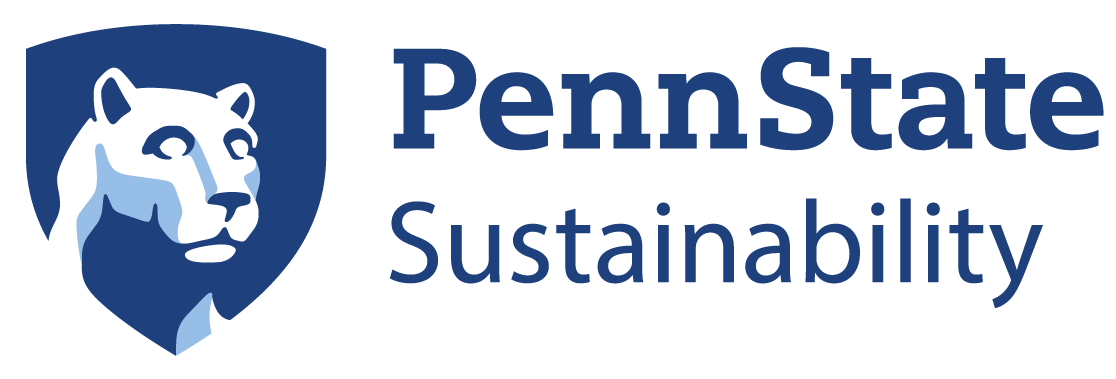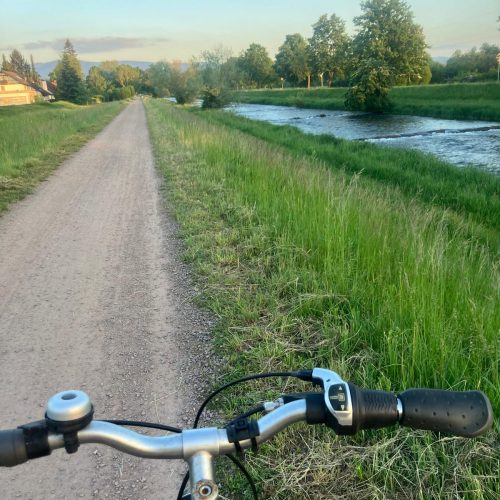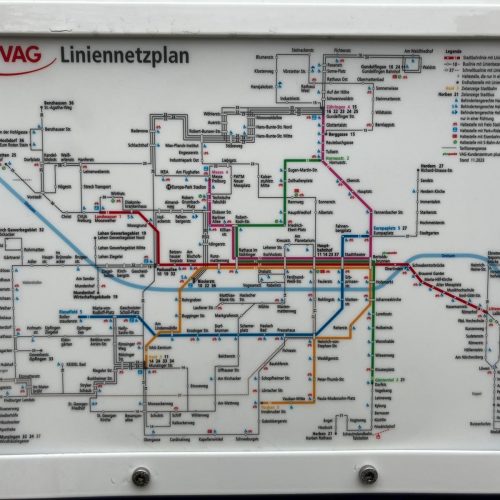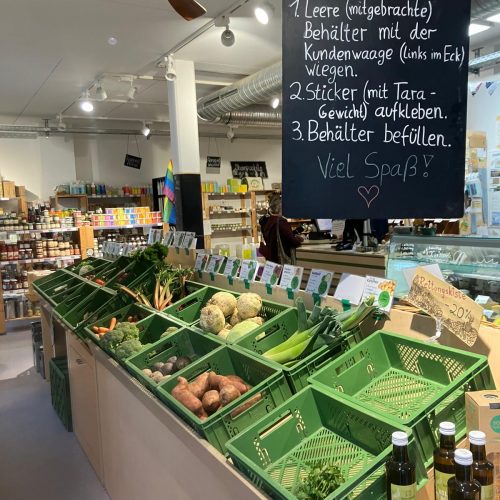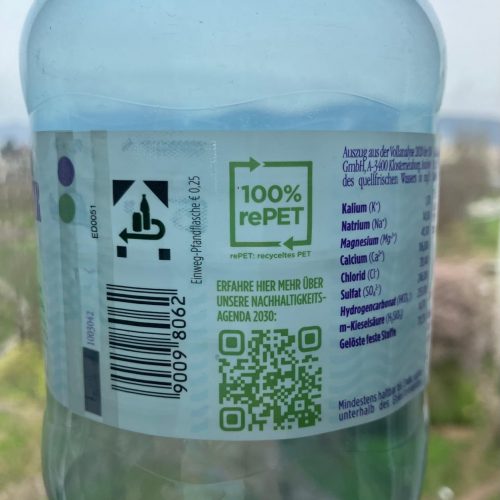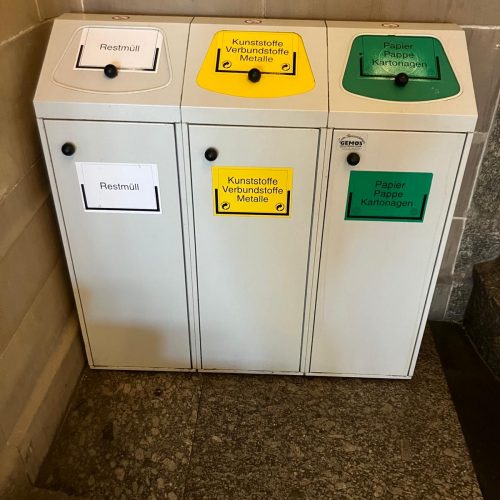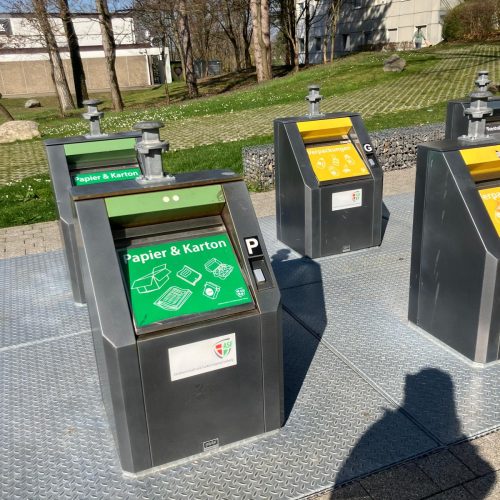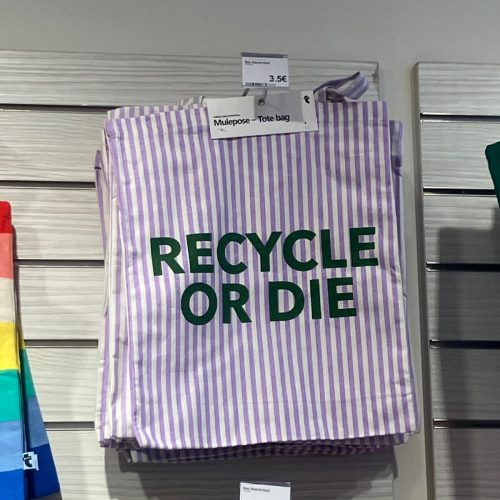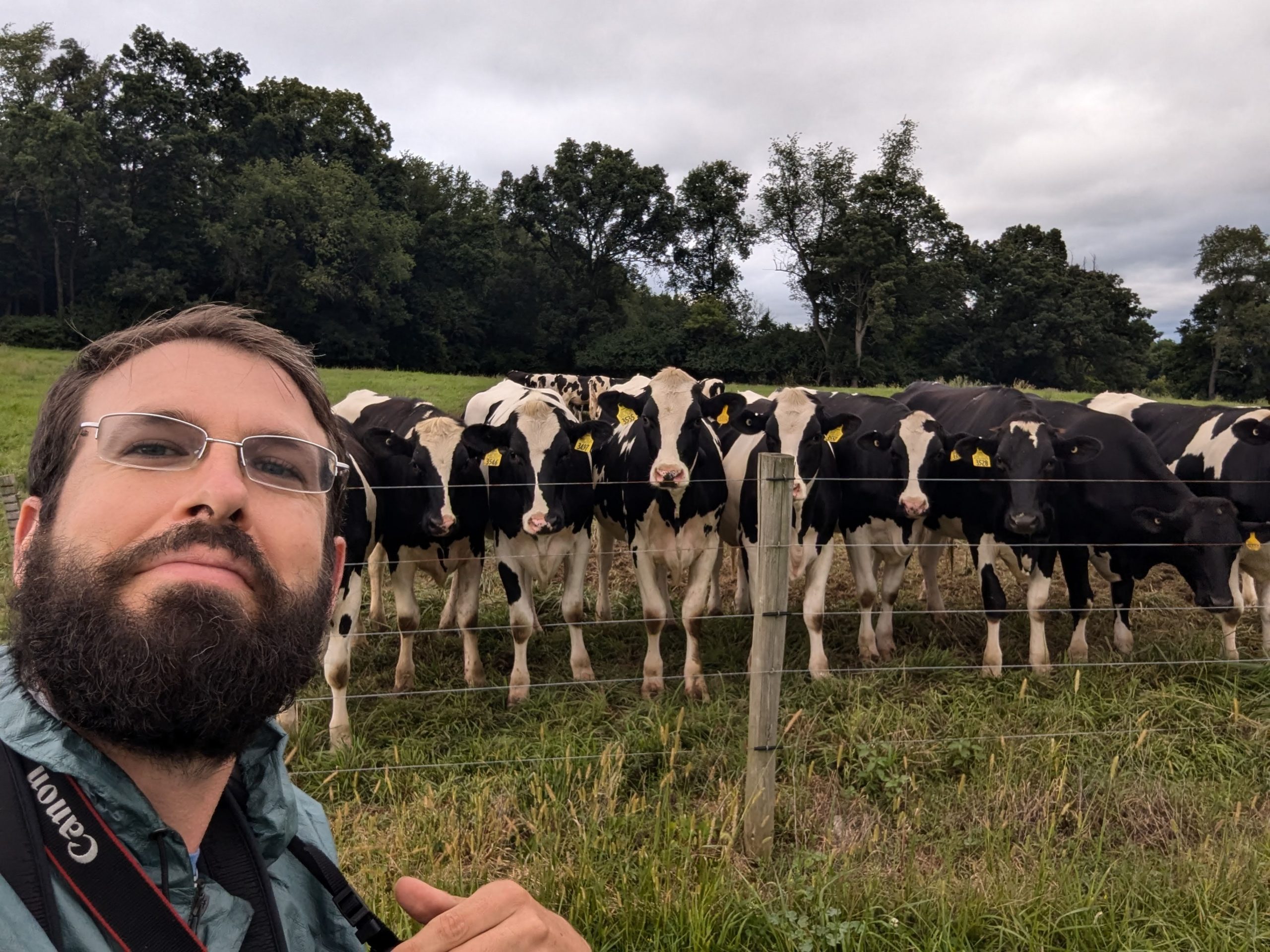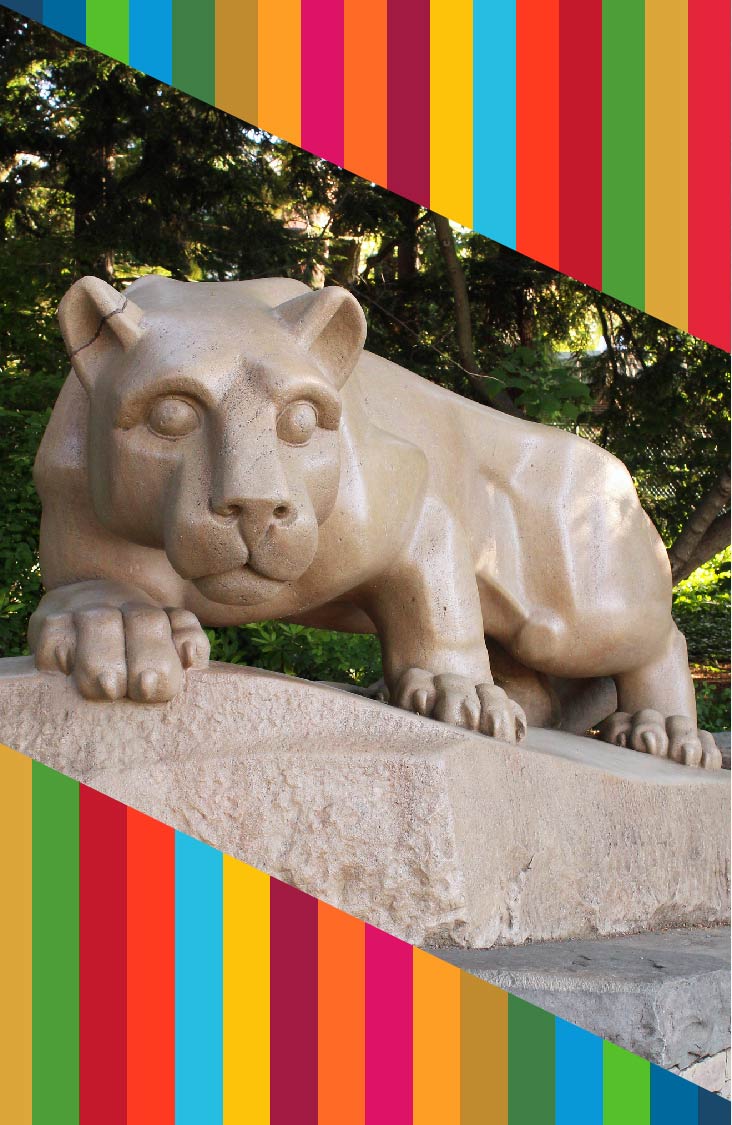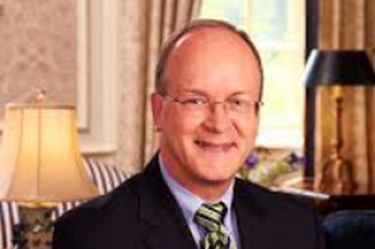Hannah Kline, Sustainability Scholar
The Penn State Global Sustainability Scholars program is a competitive scholarship program managed by Penn State Global in partnership with Penn State Sustainability. Each fall, a cohort of 10-15 students is selected who are eager to use their education abroad experience in the coming year to develop the skills and knowledge they need to advance the United Nations Sustainable Development Goals (UN SDGs). These students commit to meaningful engagement with the sustainability community at Penn State before departure, building global sustainability knowledge abroad, using these skills to advance the UN SDGs upon return, and sharing their experiences back to the Penn State community.
We’re pleased to present Hanah Kline’s Sustainability Scholar experience in Freiburg, Germany, here:
Applications for the 2024-2025 cohort are due Monday, September 16!
Sustainability in Freiburg, Germany
Upon arrival at Freiburg, Germany, I was immediately greeted and exposed to the sustainable actions that the city is taking. Freiburg is well-known in Germany for being the “Green City.” Freiburg aims to achieve 100% renewable energy by 2035 and carbon neutrality by 2050.
Vauban:
In particular, one of the residential districts, “Vauban,” is known as one of the most sustainable city districts in the world. This innovative neighborhood, developed on the site of a former French military base, has become renowned worldwide for its forward-thinking approach to urban planning and environmental design.
One of Vauban’s key pillars of sustainability lies in its commitment to reducing carbon emissions and promoting eco-friendly transportation. The neighborhood prioritizes pedestrian and cyclist-friendly pathways, with car-free zones and limited parking spaces to encourage residents to rely on more sustainable modes of transportation. Public transportation infrastructure is robust, with efficient tram services connecting Vauban to the city center and surrounding areas, further reducing the need for private vehicles.
The neighborhood boasts a high concentration of energy-efficient buildings equipped with solar panels, green roofs, and other passive design features to reduce energy consumption and reliance on fossil fuels. Additionally, Vauban’s district heating system utilizes biomass and other renewable resources, providing residents with sustainable heating solutions while reducing greenhouse gas emissions.
Second-Hand Shops:
Wandering through the streets of Freiburg, it’s easy to stumble upon charming boutiques and hidden gems specializing in pre-loved fashion, furniture, and more. These establishments not only contribute to the city’s eclectic charm but also play a crucial role in promoting sustainability by extending the lifespan of goods and reducing waste.
Some stores include Umkleide, Schlepprock, and the KiloShop. I visited these three, as they are targeted towards younger people. I purchased one shirt, which I liked. I also visited Spinnwebe, slightly outside of the city, and it was more affordable. It was less “vintage” and more “thrifty.”
Beyond the traditional brick-and-mortar stores, Freiburg also boasts a thriving online marketplace for second-hand goods. Platforms like eBay Kleinanzeigen and local Facebook groups facilitate peer-to-peer transactions and exchanges. These virtual spaces provide opportunities for individuals to declutter their homes, find hidden treasures, and connect with like-minded shoppers in the community.
Thrifting is big in the area, and contributes to sustainability via: reducing waste, reducing carbon footprint, supporting ethical consumption, and promoting a circular economy.
Flöhmarkt:
A “Flohmarkt” is the German term for a flea market or second-hand market. These popular events attract people who gather to buy and sell a wide variety of used goods, including clothing, furniture, antiques, books, electronics, and much more. Flöhmarkts are often held in public spaces such as parks, squares, or designated market areas and attract a diverse crowd of bargain hunters, collectors, and curious shoppers.
There are huge flea markets at the Freiburg Messe, a large exhibition market. There is an entrance fee, so I have only visited a Flohmarkt once. It was cool to see all of the unique treasures, vintage items, and other knick-knacks. In addition to the economic benefits, Flöhmarkts also contribute to sustainability by promoting reuse, recycling, and reducing waste. By giving used items a second chance, Flöhmarkts help divert goods from landfills and mitigate the environmental impact of consumerism. They also support the principles of the circular economy, where products and materials are reused and repurposed to minimize resource consumption and maximize efficiency.
Glaskiste:
The Glaskiste is a unique concept in Freiburg that promotes sustainability and environmentally conscious consumption. It is a kind of “glass container” that serves as a location for the sale and exchange of used glass containers.
The glass box concept aims to reduce the use of disposable packaging and promote the reuse of glass containers. Residents and visitors to Freiburg can hand in their used glass containers at the glass box and have them refilled for a small fee. This not only helps to reduce waste but also conserves the resources needed to produce new packaging.
This is a slightly more expensive location, so I could not afford to go here on my college student budget. However, I did buy some spices once. This reminds me of bring-your-own-packaging shops in Pittsburgh.
Stay Local Pledge (April 19-21):
For this weekend, instead of traveling with friends to Switzerland, I pledged to stay in Freiburg. I looked at events happening in Freiburg and decided to go. I spent four hours on Saturday taking an open-introduction dance workshop featuring West Coast swing, salsa, bachata, and tango. I danced occasionally back in the USA with Social Dance Club, and this was a great experience to meet people.
On Sunday night, I went to the Europa Park-Stadion to catch a local soccer match featuring SC Freiburg against FSV Mainz ‘05, the city’s beloved football club. The stadium excitedly buzzed as fans clad in the team’s colors filled the stands, chanting and cheering in unison. Amidst the sea of cheering spectators, I felt a sense of camaraderie and shared passion for the beautiful game. It was an insane experience comparable to Penn State Football energy, even though fewer people were there.

Strand Cafe:
Strandcafe Freiburg is a café in Germany committed to sustainability and community. They tackle food waste by using imperfect produce from local sources. The café is run as a cooperative, where everyone has a say. My professor was a part of this cooperative and took us there. They also host workshops on sustainability. Through delicious food and community engagement, Strandcafe shows that being eco-friendly can be both tasty and profitable. There is a glass case where leftover/uneaten food is stored for others to take and eat.
Rosskopf Hike – Windturbines:
The wind turbines at Rosskopf in Freiburg, Germany, symbolize sustainability by harnessing wind power for clean energy. They generate electricity efficiently, reducing reliance on fossil fuels and mitigating climate change. These turbines are a visible commitment to environmental stewardship and bring economic benefits through job creation and local investment. There are 6 turbines at the top of this hike (about 8km from the edge of Freiburg).

Return Home – Flight/Trains:
I noticed that my German Airline plane made an announcement about sustainability and its methods for reducing carbon emissions. The food was served with wooden utensils, and drinks were in reusable plastic cups.

After using lots of train transportation, I decided on my return home that I would try taking an Amtrak to Elizabethtown instead of having my mom drive a 5-hour round trip to pick me up. To no surprise, the Amtrak was quite empty!



